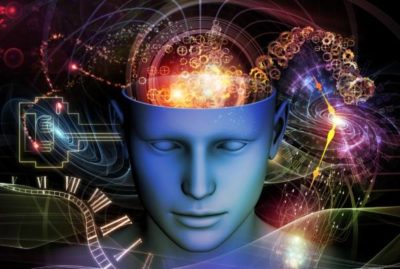
“If I can bring joy into the world, if I can get people to stop thinking about their pain for a moment … then I’ll be successful.”
-Bobby McFerrin, musician
Music Therapy
Listening to music has long been considered an effective means of reducing stress. As growing research has established the important role of stress in immunity, mental health, pain and other disease processes, the medical field has focused on music as a means of reducing various disease processes including pain, anxiety and insomnia.
See also:
Meditation & Mindful Exercises
Key to Links:
Grey text – handout
Red text – another page on this website
Blue text – Journal publication
[cws-widget type=text title=””].
Music
Music and Pain (“Audio Analgesia”)
Numerous recent studies have provided evidence that listening to music reduces perception of pain intensity and/or perception of control over pain and reduces stress, a contributor to pain. In a recent study looking at music and pain in fibromyalgia patients, a number of interesting conclusions were drawn. The reasons for listening to music emerged as especially relevant in predicting increased control over pain. ‘Relaxation’ and ‘activation’ seemed to be the most important factors.
While it was expected that calming music would be more effective, activating music was considered equally effective. As it might be predicted, the more time spent listening to music the greater the benefit. In another study, the benefits were greater for those who actively listened to music as the focus of their attention versus those who passively listened to music while performing other tasks or activities, although benefits remained significant in the latter. Furthermore, as might be expected, self-selected music offered greater benefit compared with “assigned” music.
While studies do not appear to have been performed comparing listening to music versus playing a musical instrument, one might predict the benefits to be greater for the performer than the listener, assuming a greater degree of concentration, or focal mindfulness, on behalf of the performer.
In an effort to understand the mechanism by which listening to music reduces pain, measurements of stress-related hormones and other biomarkers were evaluated but did not correlate with pain benefit. It is hypothesized that the limbic system of the brain, known as the emotional center of experience and known to be a source of pain-inhibiting neural pathways, is the likely mediator of music effects on pain.
In a related 2015 pilot study, exposure to low frequency sounds (40 Hz) in patients with fibromyalgia resulted in remarkable improvements in pain, mood, insomnia and activities. Subjects were exposed to the low frequency sounds for 23 minute sessions, twice a week for 5 weeks. Almost 90% of the subjects described their overall conditions to be “much” or “very much” better with no one reporting their condition as worse. Additionally, 73% of patients reduced the amount of pain medications taken and 26% were able to discontinue their medications, at least temporarily. The mechanisms for the benefits identified are unknown and the researchers called for additional studies to investigate their findings further.
Music and Stress
Studies have demonstrated that listening to music reduces stress. A 2015 study revealed that mere music listening was effective in reducing subjective stress levels. The most profound effects were found when ‘relaxation’ was stated as the reason for music listening, In another 2015 study, it was shown that listening to music resulted in enhanced mood that correlated with reduced stress that was associated with changes in the levels of stress-related hormones.
References:
Music
- Effectiveness of music therapy – a summary of systematic reviews based on randomized controlled trials of music interventions
- Music Therapy – Research Summary 3.3.14
- Predictions and the brain: how musical sounds become rewarding. – PubMed – NCBIThe neurochemistry of music. – PubMed – NCBI
- Hypothesizing Music Intervention Enhances Brain Functional Connectivity Involving Dopaminergic Recruitment – Common Neuro-correlates to Abusable Drugs – 2017
Music – Pain
- Effect of Music on Neuropathic Pain
- The effects of music listening on pain and stress in the daily life of patients with fibromyalgia syndrome – 2015
- Effects of music on pain in patients with fibromyalgia. – PubMed – NCBI
- Music as a sleep aid in fibromyalgia – 2014
- The effect of low-frequency sound stimulation on patients with fibromyalgias – 2015
- The neurochemistry of music. – PubMed – NCBI
Music – Stress
- Music listening as a means of stress reduction in daily life. – PubMed – NCBI
- The impact of acute stress on hormones and cytokines and how their recovery is affected by music-evoked positive mood – 2016
- Maladaptive and adaptive emotion regulation through music – 2015
Emphasis on Education
Accurate Clinic promotes patient education as the foundation of it’s medical care. In Dr. Ehlenberger’s integrative approach to patient care, including conventional and complementary and alternative medical (CAM) treatments, he may encourage or provide advice about the use of supplements. However, the specifics of choice of supplement, dosing and duration of treatment should be individualized through discussion with Dr. Ehlenberger. The following information and reference articles are presented to provide the reader with some of the latest research to facilitate evidence-based, informed decisions regarding the use of conventional as well as CAM treatments.
For medical-legal reasons, access to these links is limited to patients enrolled in an Accurate Clinic medical program.
Should you wish more information regarding any of the subjects listed – or not listed – here, please contact Dr. Ehlenberger. He has literally thousands of published articles to share on hundreds of topics associated with pain management, weight loss, nutrition, addiction recovery and emergency medicine. It would take years for you to read them, as it did him.
For more information, please contact Accurate Clinic.
Supplements recommended by Dr. Ehlenberger may be purchased commercially online or at Accurate Clinic.
Please read about our statement regarding the sale of products recommended by Dr. Ehlenberger.
Accurate Supplement Prices
.

